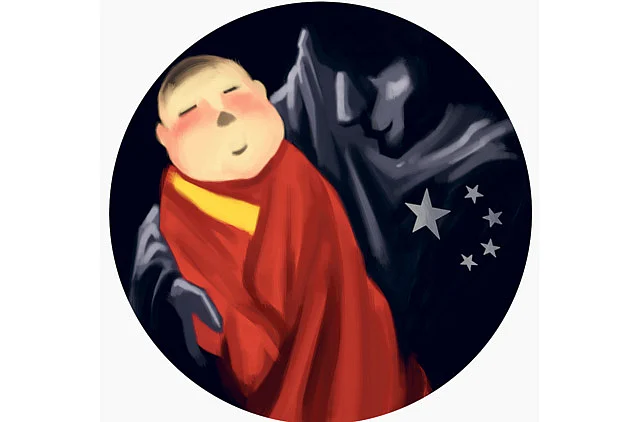It is not easy for any modern secularist country to deal with a faith-based institution that is far older than itself and refuses to be domesticated. Imagine a state that is professedly communist; tolerates religious beliefs for ordinary citizens, but not for the members of the dominant ruling party; and has within its territory a deeply religious ethnonationalist people who find most of their traditional leaders in exile accused of separatism. Yes, that state is China; the people concerned are Tibetans; and the institution is that of the Dalai Lama.
What makes life difficult for the rulers is the fact that the Dalai Lama is more than a political and religious leader of Tibetan people. He is also a globally recognised personality known for his universalist values. The 14th Dalai Lama is a figure like no other.
The Dalai Lama represents a centuries-old institution and is an embodiment of Avalokitesvara, a bodhisatva of compassion, and is the spirit of the Tibetan nation. A bodhisatva is an enlightened being who stays back on earth to help people. As a person, the present Dalai Lama, Tenzin Gyatso, has proven his leadership by taking Tibet out of its geographical location in the heart of Asia to unlikely places across the globe.
As the Dalai Lama gets older, there is no sign of compromise between him and Beijing, prompting speculation about the future of the institution.
A highly probable scenario for the 15th Dalai Lama is that there will be two of them: one boy recognised inside China with Beijing's blessings, another somewhere in exile. The world might be spiritually richer with more tulkus ("living Buddhas"), but it will be the end of all hopes for reconciliation between China and its Tibetan population.
Does Beijing mean to facilitate the material and spiritual wellbeing of Tibetans and create a genuinely harmonious society? Or is the intervention to domesticate, and even subvert, the most cherished specificity of Tibetan Buddhism, the reincarnate lamas? China says that it wants to better manage Tibetan religious freedom provided in the constitution; but its critics reject this claim as a distortion of traditional religion and a cynical ploy to take control over the next Dalai Lama.
Reincarnate lamas, that is tulkus, are embodied institutions believed to be higher realised beings, who control their rebirths and are integral to Tibetan Buddhist culture. Once a reincarnate lama passes away, his soul is said to transfer itself to another body, usually that of a young boy. After a search governed by indications given by the previous body, rituals, cosmic signs, dreams and material factors, the new reincarnation is found and confirmed. The search party, as well as those who confirm the final selection, is often itself composed of reincarnate lamas and expected to have a close association with the embodied institution.
In this scenario, can there be any legitimacy behind "China's Dalai Lama", should the hardliners go ahead with finding one after the demise of the present Dalai Lama in exile? The simple answer is no. Does this imply that China should have no role in the 15th Dalai Lama should the 14th pass away in exile?
Not necessarily. China could reach out to the exile Tibetans, offer to support the search team in all ways possible, remind the team that the most stable outcome for all will be to get the Chinese government's stamp of approval, and the new baby Dalai Lama to visit his homeland. By reaching out and offering a friendly hand, China could change the name of the game. On the other hand, by letting its policy remain hostage to hardliners, it will destroy hope for future reconciliation with its own minorities.
Once the present leader dies, and we have a "China's Dalai Lama" and an "exiles' Dalai Lama", all hope for a compromise will evaporate. No longer able to negotiate or talk to exile Tibetans, China will face the impossible task of selling its own choice to the Tibetans, Chinese and the rest of the world. A new source of tension and instability will be created in the Tibetan plateau. Maybe only then will the Chinese leaders develop nostalgia for the 14th Dalai Lama, and the hope for stability and reconciliation that only he provides.
Dibyesh Anand is an Associate Professor at London's Westminster University and an expert on majority-minority relations in China and India.
Sign up for the Daily Briefing
Get the latest news and updates straight to your inbox
Network Links
GN StoreDownload our app
© Al Nisr Publishing LLC 2026. All rights reserved.
